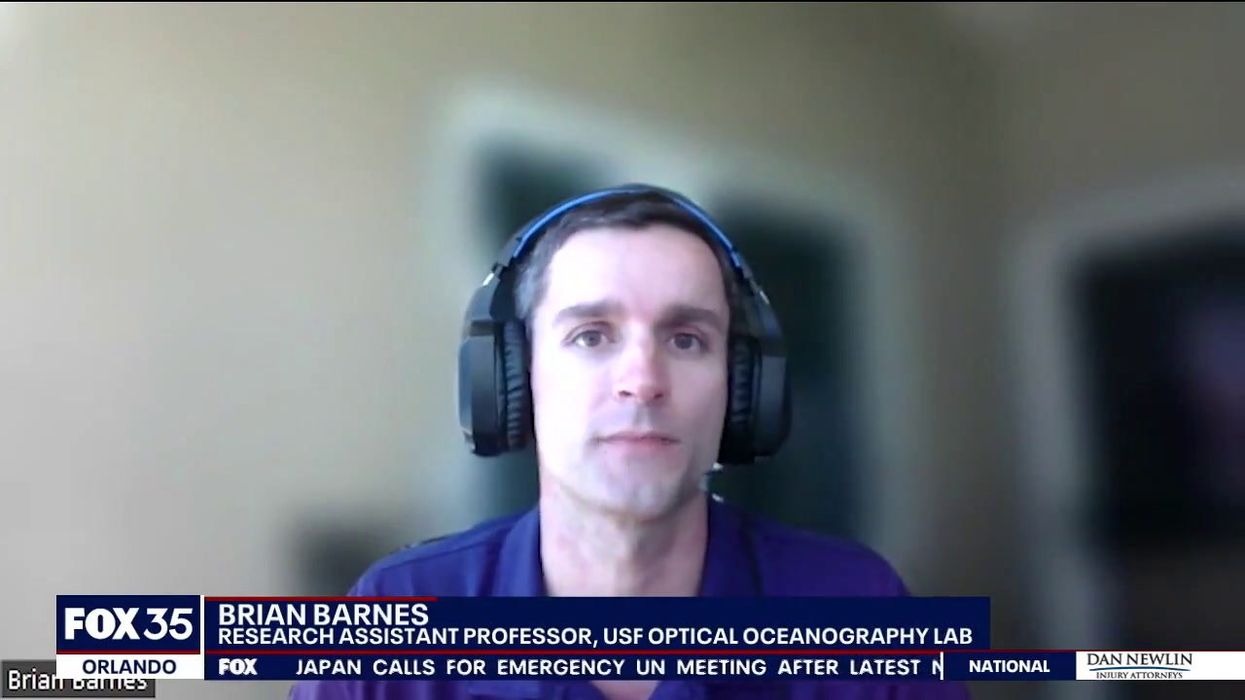Ariana Baio
Mar 16, 2023
Florida beaches could see record-breaking seaweed bloom
content.jwplatform.com
A warning to all beachgoers planning a summer vacation to Florida, Mexico, or the Caribbean this year: bring nose plugs and maybe some beach shoes.
According to scientists from the University of South Florida, a massive glob of stinky seaweed, called sargassum, is floating in the Atlantic Ocean and it seems to be headed toward Florida.
Sargassum is a type of algae often found floating on the surface of the ocean or washed up on beaches.
And while some sargassum is good for the ecosystem, too much can clog canals, damage boat propellers, and make for an unpleasant day at the beach.
Sign up for our free Indy100 weekly newsletter
This year, the massive glob of sargassum is estimated to span more than 5,000 miles (8,047 km) wide, spanning from the coast of Africa to the Gulf of Mexico
“This is very rare in history," University of Florida oceanography professor Chuanmin Hu said to USA Today. "All we can do now is keep a close eye on what's going on."
The huge amount of seaweed is slightly concerning because it does not typically bloom in large quantities this time of year.
With last year’s total amount of sargassum setting a record, Hu said 2023 could be another “major sargassum year.”
While not harmful to humans, it is irritating for swimmers or people sensitive to smells.
Sargassum can emit a rotten egg-like smell as it decomposes. According to Hu, the smell can be a particular nuisance to people with breathing conditions like asthma.
Sargassum can be difficult to get rid of too. According to Boynton Beach Ocean Rescue chief Tom Mahady, "Our beach could literally be clean at 8 am and three to four hours later a giant mat of sargassum the size of a mall will come in like the blob, like a Stephen King movie."
Researchers believe this year's giant clump of sargassum could threaten tourism in Florida, Mexico, and the Caribbean, as it appears to be headed that way.
Dr Brian Lapointe, a researcher at Florida Atlantic University's Harbor Branch Oceanographic Institute, told CNN, this phenomenon could create a "catastrophic problem" for tourism in the Caribbean.
"It piles up on beaches up to five or six feet deep," Lapointe said adding that locals in Barbados were using "1,600 dump trucks a day" to try and clean beaches.
The amount of sargassum changes each year depending on rainfall, wind, nutrients in the ocean, and sea currents. This year's conditions seemed to create the perfect cocktail for an outrageous amount of seaweed.
So before you book your summer vacation, you may want to check on the amount of sargassum.
Have your say in our news democracy. Click the upvote icon at the top of the page to help raise this article through the indy100 rankings.
Top 100
The Conversation (0)














